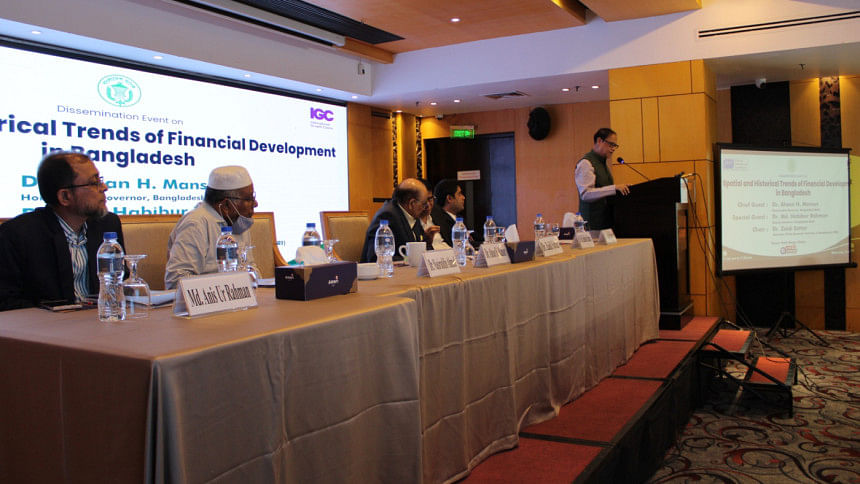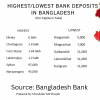Nearly 42% of deposits held by 0.1% of account holders: PRI study

Only 0.1 percent of account holders have deposits of Tk 1 crore or more, and they collectively held almost 42 percent of the total deposits in the banking system in 2024.
This indicates a sharp concentration of wealth among a small portion of the population, according to a study by the Policy Research Institute (PRI).
Using data from the Bangladesh Bank, the PRI conducted the study titled "Spatial and Historical Trends of Financial Development in Bangladesh" with support from the International Growth Centre (IGC).
The private think tank shared the findings of the report today at an event in Dhaka.
The study also revealed that deposits are heavily concentrated in two districts—Dhaka and Chattogram—which together account for over 35 percent of all deposits in the country.
Not just deposits—loans in the banking sector are also concentrated in these two districts. Only 1.2 percent of loan accounts have outstanding amounts of Tk 1 crore or more, yet they account for nearly 75 percent of the total loan volume, the PRI said.
Between 2019 and 2024, around 40 to 42 percent of the total loans went to the industrial sector, while lending to the agricultural sector remained low, hovering between 4 and 5 percent over the same period.
Speaking at the event, Bangladesh Bank Governor Ahsan H Mansur said the government needs to realign its policies in light of these findings, and the central bank is already working on strategies to promote financial inclusion.
"Bangladesh has the highest density of bank branches in the world, so our focus is no longer on increasing the number of branches, but rather on enhancing their utilisation," he said.
"The central bank is encouraging banks to appoint more female banking agents, who can access rural households more effectively and help bring household savings into the formal banking system," he added.
He also noted that once agent banks begin providing credit to rural clients, the interest rates for microcredit will come down naturally due to increased competition.
As part of its financial inclusion strategy, the Bangladesh Bank is also promoting the wider use of QR code-based transactions, he said.

 For all latest news, follow The Daily Star's Google News channel.
For all latest news, follow The Daily Star's Google News channel. 






Comments